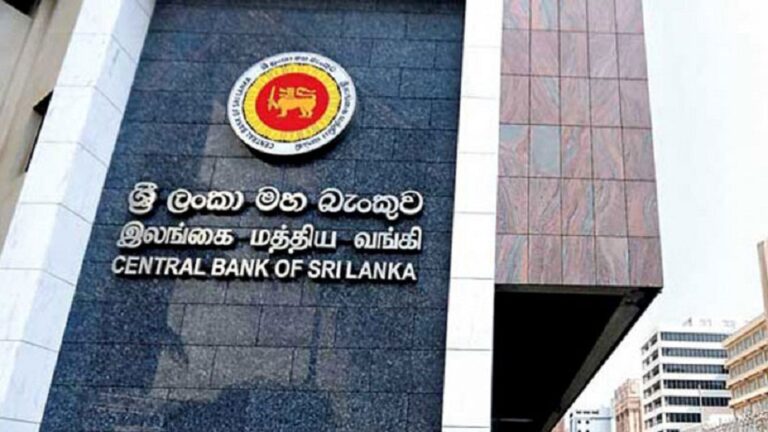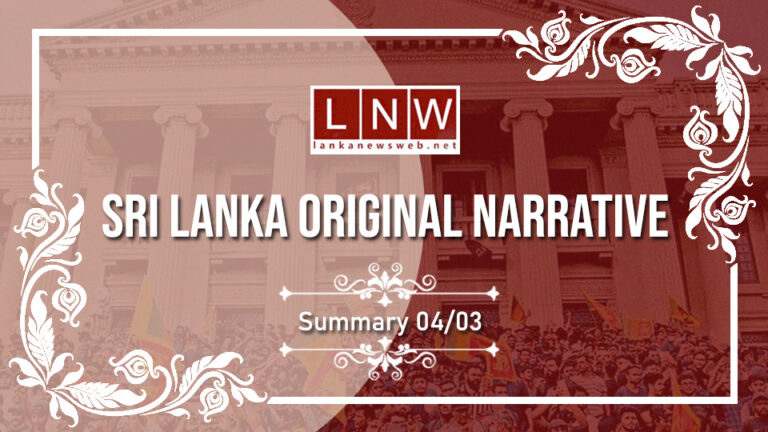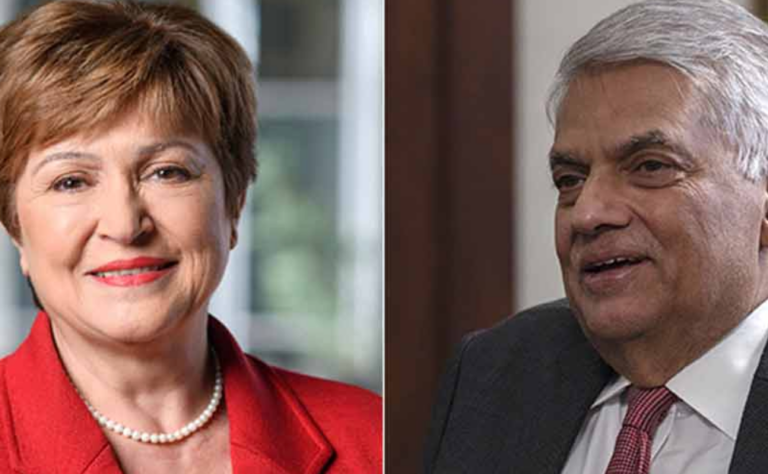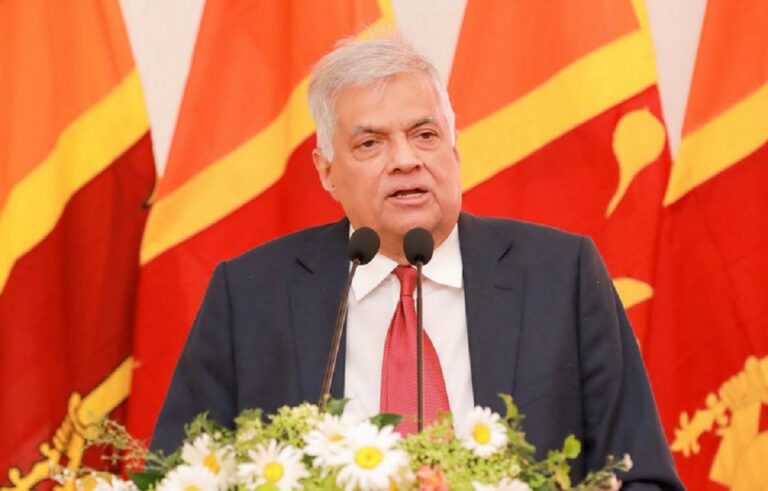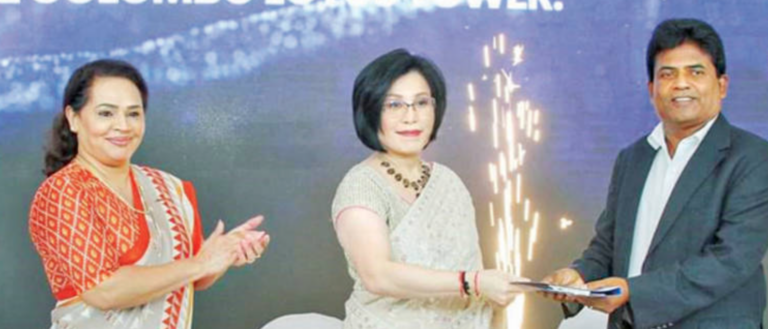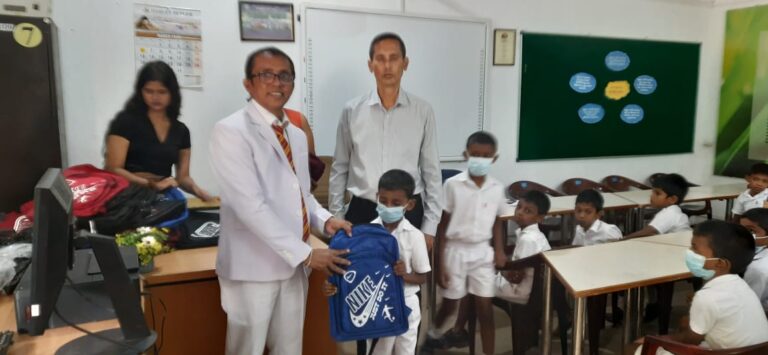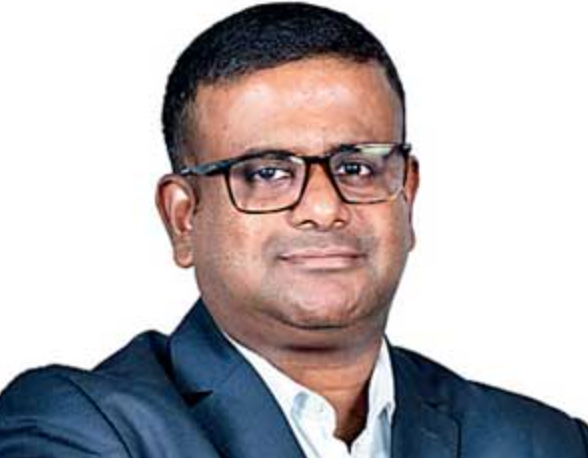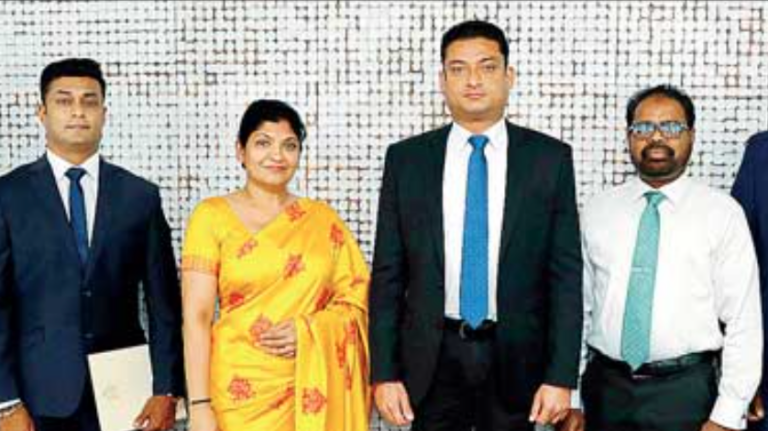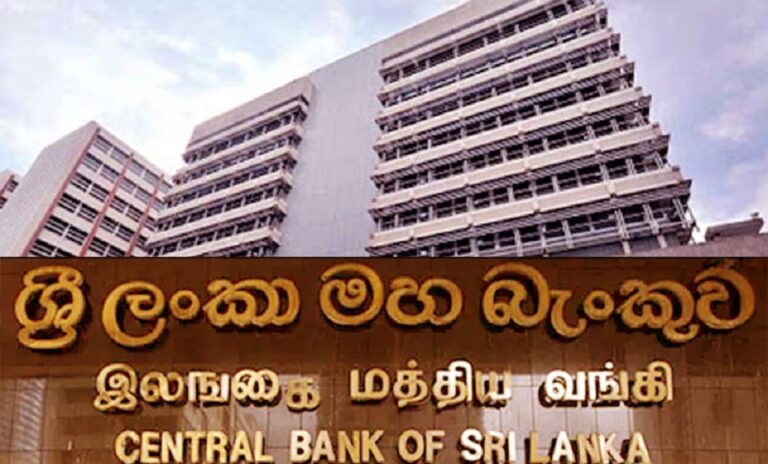Sri Lanka’s Central Bank has raised policy rates by 100 basis points to 16.50 percent effective from March 03 in order to fulfill its commitments made to the International Monetary Fund to obtain the approval of the executive board approval for economic reforms program and unlock the extended Fund Facility of US$ 2.9 Billion this month.
“There have been some differences between the CBSL and IMF staff on the inflation outlook,” the central bank governor Nandalal Weerasinghe said in monetary policy review media conference on Friday 03 in Colombo.
“Given the necessity of fulfilling all the ‘prior actions’ in order to move forward with the finalization of the IMF Extended Fund Facility (EFF) arrangement, the Monetary Board and the IMF staff reached consensus to raise the policy interest rates, in a smaller magnitude, compared to the adjustment, which was envisaged during the initial stage of negotiations he disclosed. .
The CBSL and the staff of the International Monetary Fund (IMF) have been engaging continuously in intensive negotiations on the monetary policy stance amidst extraordinarily high inflation and a high degree of uncertainty surrounding inflation projections and the near term outlook.
There have been some differences between the CBSL and IMF staff on the inflation outlook.
Given the necessity of fulfilling all the ‘prior actions’ in order to move forward with the finalization of the IMF Extended Fund Facility (EFF) arrangement, the Monetary Board and the IMF staff reached consensus to raise the policy interest rates, in a smaller magnitude.
This was compared to the adjustment, which was envisaged during the initial stage of negotiations.
This decision demonstrates Sri Lanka’s commitment to the IMF-EFF arrangement, which has been pursued by the Government in order to ensure stability in the economy on multiple fronts.
The finalization of the IMF-EFF arrangement is expected to benefit all stakeholders and bolster confidence, which would help restore stability in the economy on a sustained basis.
This will incentivise more foreign exchange flows in the period ahead that would aid the economy to overcome the prevailing economic crisis.
The Board was of the view that the economy has already traversed through the most difficult and unprecedented times with tremendous resilience and strongly believes that today’s decision would pave the way for a faster-than-expected deceleration of inflation.
The Monetary Board anticipates that this monetary policy action would help lower the spread between policy interest rates and high market interest rates.
This spread is expected to be further reduced with the reduction in market interest rates in the period ahead, especially the yields on government securities, reflecting the easing of risk premia as the debt restructuring process.
Central Bank raises policy rates again to satisfy the IMF to get EFF
SL and South Asia’s first all-electric supercar “Vega” hit the roads soon
The Department of Motor Traffic has approved the registration of ‘Vega’ cars – not only Sri Lanka’s, but also South Asia’s first all-electric supercar.
Accordingly the number plate for the first Vega car registered in Sri Lanka was handed over today (03 March) to the President and CEO of CodeGen and the designer of the car, Harsha Subasinghe.
The number plate was handed over by the Commissioner General of the Department of Motor Traffic following its registration in accordance with the existing regulations before the introduction of new procedure proposed in budget 2023.
The event was held in the presence of Transport Minister Bandula Gunawardena and Minister of Industries Dr. Ramesh Pathirana.
However Finance State Minister Shehan Semasinghe says discussions should be conducted to prepare necessary legal provisions and regulations regarding the 2023 budget proposal for registration of vehicles imported to or assembled in Sri Lanka before November 12, 2021.
The the new reforms are expected to be carried out on motor vehicle registration, regulation, issuance of driver’s licenses and road safety, he said in a tweet.
Further, minimizing the issues faced by the people as a result of the existing legal framework with regard to the assembly, sale and use of automobiles in Sri Lanka.
The main focus was on the implementation of 2023 budget proposals presented with the aim of preparing new methods to replace the outdated ones regarding the use of motorcycles, tricycles and other cars.
The Vega supar car registered as road worthy in Sri Lanka by Motor Traffic Department recently more than two years after the Vega Innovations, a subsidiary of CodeGen International (Pvt) Ltd., created history in 2020 by displaying the Vega EVX, Sri Lanka’s and South Asia’s first fully Electric Supercar at the 90th Geneva International Motor Show in Switzerland.
Vega EVX was the first-ever vehicle in history, entirely designed and engineered in Sri Lanka to be showcased at a premier international motor show.
The all electric two-seater Supercar is powered by a dual-motor all-wheel-drive drive train delivering 804HP and 720NM of torque.
With a 40kWh battery-pack, recent test drives confirm a staggering 0 to 100 kmph acceleration in 3.1 seconds, an estimated range of 250 kilometres and a top speed of 240 kmph denotes the overall performance of the Vega EVX Supercar.
The supercar showcases advanced multidisciplinary technology applications and a skillfully fabricated lightweight carbon fiber body.
This two-seater Supercar showcases advanced multidisciplinary technology applications and a skilfully fabricated lightweight carbon fiber body.
“Unlike most electric Supercars in the market, electronics and software for Vega EVX along with the Liquid Cooled Battery-pack and the Motor-controller were entirely designed and developed by the in-house team.
Moreover, the Electronic Vehicle Controller, Body Controller, Thermal Control System, fully Digital Infotainment System and Instrument Cluster components developed ground-up adds to the product excellence and know-how of Vega Innovations,” stated Beshan Kulapala Director Vega Innovations.
Sri Lanka Original Narrative Summary: 04/03
- Chinese PM Li Keqiang says China is open to participating in multi-lateral efforts to help heavily indebted nations such as Sri Lanka: also says all sides should share “equitable burden”: Chinese Foreign Minister Qin Gang criticises multi-lateral lenders for not accepting losses or haircuts on loans to low-income countries like Sri Lanka while Beijing is being asked to do so: many analysts now increasingly believe that the so-called “senior creditors” – IMF, WB & ADB – must also bear the burden of re-structuring.
- Supreme Court issues order to Treasury Secretary Mahinda Siriwardene preventing him from withholding funds allocated for elections via the Budget 2023: also decides to hear petition filed by SJB General Secretary Ranjith Madduma Bandara seeking the release of funds allocated for the LG Polls via the Budget.
- IMF says tax reforms were needed in Sri Lanka “to correct imbalance of tax revenue & expenditure”: also says reforms helped to “regain confidence of creditors”: analysts say additional taxes collected have been far less than the additional interest paid by the Govt on Govt Securities, while business confidence and growth have plunged.
- Sri Lankan Rupee “fixed” at a buying rate of Rs.334.50 & selling rate of Rs.348.03: middle rate “fixed” at Rs.346.17: bankers say the recent appreciation of the LKR is based on the simple “fixing” of the Rupee parity daily at a new value via an order from the CB Governor Nandalal Weerasinghe.
- SriLankan Airlines flight from Guangzhou, China carrying 115 Chinese tourists arrives for the first time after the Covid-19 pandemic: thrice weekly service each to Shanghai, Beijing & Guangzhou to be operated by SriLankan Airlines from April onwards.
- Monetary Board increases the Standing Deposit Facility Rate and the Standing Lending Facility Rate by a further 100 basis points to 15.50% & 16.50% respectively: analysts puzzled as the CB has recently claimed inflation has reduced from 79% to 50% and that “the economy has stabilized”.
- CB Governor Nandalal Weerasinghe says all required “prior actions” with the IMF are now completed and that the country stands ready to unlock the IMF programme, hopefully, this month: also says the Central Bank must work independently from Parliament since politicians only take popular decisions.
- SJB MP Nalin Bandara says he heard the Jathika Jana Balawegaya Leader Anura Kumara Dissanayake saying that his party would give a period of one year for the Govt to hold the LG election: claims that statement suggests the JJB has an agreement with the Govt to postpone the local polls.
- President Ranil Wickremesinghe holds a decisive zoom discussion with IMF Managing Director Kristalina Georgieva, extensively on the IMF bailout package and the expected debt restructuring for Sri Lanka.
- President Ranil Wickremesinghe says a change of Govt can only be brought about through a Parliamentary election, and reiterates the streets is not an option for Parliament.
A special discussion between the Managing Director of the IMF and the President
A special discussion between Managing Director of the International Monetary Fund, Kristalina Georgieva and President, Ranil Wickramasinghe was held yesterday (02) night via Zoom.
There have been long discussions regarding the financial facility of the International Monetary Fund and debt restructuring that Sri Lanka is looking for.
At present, a positive and optimistic background is being created from all parties related to Sri Lanka’s debt restructuring and financial facility.
After the recent discussion with the Chinese Prime Minister, it is a unique situation that the Managing Director of the International Monetary Fund joined the discussion with the President.
Also, Bloomberg had recently reported that China is open to participate in multilateral efforts to contribute meaningfully to the states that are in debt crisis, Chinese Premier Li Keqiang told the Managing Director of the International Monetary Fund.
It was further stated that debt-ridden countries such as Sri Lanka and Pakistan will take necessary steps to take joint action.
A change of government can only be brought about through a parliamentary election
A change of government can only be brought about through a parliamentary election and the streets are not an option for parliament
President Ranil Wickremesinghe emphasized that the only way to bring about a change of government is through a parliamentary election and not through street protests, stating that the latter is not a viable option for the parliament.
The President emphasized that a nation can become anarchic due to an economic collapse and urged everyone to prioritize safeguarding both the constitution and the economy of the country.
President Ranil Wickremesinghe said this while addressing the commissioning ceremony of the Air Force Officer Cadets at the Trincomalee Air Force Base this morning (03).
Commander-in-Chief of the Armed Forces, President Ranil Wickremesinghe, who arrived at Trincomalee Air Force Base, was received with air force honours.
Meanwhile, 40 Officer Cadets including three females were commissioned as Officers of the Sri Lanka Air Force by the Chief Guest, and received their ceremonial swords, which symbolizes their status as Commissioned Officers.
Thereafter, flying brevets were pinned on 13 pilot officers and 07 trophies are awarded for special achievements.
Two Officer Cadets who have shown exceptional performance were awarded the Sword of Eagle for the best student of General Duties Pilot Branch and the Sword of honour for the overall best student among all branches.
The President also posed for a group photograph with the newly commissioned officers and senior officers.
The Sri Lanka Air Force Band rendered a special performance and the parachute display adding colour to the event.
Addressing the gathering, President Ranil Wickremesinghe said,
“I would like to first congratulate the Air Force all of you present here today.
After completing your education, you decided to join the Air Force and have successfully completed your training, leading you to this point in your career. It brings great joy not only to you, but also to your parents, that you have been able to overcome the challenges and join the ranks of the Forces. You may even be the first person from your village to become an Air Force Officer, which is a remarkable achievement.
However, with this achievement comes a great responsibility to uphold the dignity of your profession and avoid any activities that could tarnish its image. It is imperative that you remain vigilant and conduct yourself in a manner that reflects positively on the Air Force. Any misstep or incident that causes harm to the image of your profession will not only bring disrepute to yourself, but also to the Air Force as a whole. Therefore, it is your duty to maintain the highest standards of professionalism at all times.
Upon taking office, you made a solemn vow to uphold the constitution, and as members of the Air Force, you also took an oath. It is now your duty to ensure the protection of the constitution, and in doing so, protect the country as well. It is crucial to understand that without a country, the constitution holds no value and is merely a useless piece of paper.
Therefore, it is your responsibility to safeguard both the country and the constitution, as they are inextricably linked. Your commitment to protecting the constitution should be unwavering, as any harm inflicted upon it could have severe consequences for the nation. With your determination and dedication, you can help to ensure the continued prosperity and stability of the country, and uphold the values enshrined in the constitution.
As per the oath you took, it is imperative that you act with utmost loyalty towards the country, the constitution, and the republic. The very first paragraph of the constitution emphasizes the need to protect the unity of the country, which places a significant responsibility on your shoulders.
Therefore, it is your duty to remain committed to the preservation of the country’s unity and sovereignty, which is essential to the overall well-being of the nation. You must act in a manner that is consistent with your oath, and remain vigilant against any threats to the country’s security and integrity. With your unwavering loyalty and commitment, you can help to protect the country, uphold the constitution, and maintain the unity and prosperity of the nation.
The constitution is a crucial document that covers essential matters related to the sovereignty of the people, the national flag, and the national anthem. All of these are included to ensure the security and protection of the country, and there is simply no room for any activity that may jeopardize the nation’s sovereignty and independence.
During the period between 1980 to 2009, the country faced significant threats to its unity and territorial integrity. It was during this time that the armed forces and the police made immense sacrifices to safeguard the nation. Their unwavering commitment and dedication helped to protect the country’s sovereignty and independence, and ensured that its people could live in peace and security.
In order to move forward as a united and prosperous country, all individuals regardless of their ethnicity, religion, or cultural background must work together. Whether Sinhalese, Tamil, Muslim, Burgher, Buddhist, Catholic, Hindu or Muslim, it is essential that all citizens come together to work towards the greater good of the nation. Only by working together can we build a stronger, more prosperous future for our country and its people.
The legitimacy of Sri Lanka’s government is established by the executive, legislature, and judiciary. The judiciary plays a crucial role in upholding and enforcing the laws enacted by the legislature. All three institutions are focused on safeguarding Sri Lanka’s constitution and ensuring that the country functions in accordance with its laws and regulations.
It is the responsibility of every citizen to help protect these institutions, which are essential to the proper functioning of the government and the preservation of Sri Lanka’s democracy. Without these institutions, there can be no assurance that the country will remain stable and secure.
It is important to note that any changes to the government must be made through the proper channels, such as a parliamentary election. The streets are not an option for the parliament, and any attempt to subvert the established process would be a violation of Sri Lanka’s constitution and the rule of law.
I am deeply grateful to the armed forces for their role in protecting the Parliament last June. As we have seen in other countries, when a parliament is not safeguarded, chaos and anarchy can quickly ensue. Similarly, a country without a strong economy is also at risk of devolving into chaos.
It is therefore the responsibility of all of us to work together to protect both the constitution and the economy of our country. In recent days, I have met with various organizations to discuss strategies for boosting the economy, and I am confident that our efforts will yield positive results in the near future.
By protecting our country and upholding its constitution, we can ensure that our democracy remains strong and vibrant. To all of the newly-minted Air Force members here today, I wish you a prosperous and fulfilling future.”
The Passing Out Parade held at the Air Force Base was attended by a total of 37 Commissioned officers, including three female officers, and 318 other ranks.
During the Passing Out Parade at the Air Force Base, President Ranil Wickremesinghe awarded the commissioned Air Force officers with the Sword of Honour. The ceremony was accompanied by special performances from the Air Force Bands and the Parachute Squadron.
State Minister of Defence Premitha Bandara Tennakoon, President’s Chief of Staff and Senior Advisor to the President on National Security Sagala Ratnayake, Eastern Province Governor Anuradha Yahampath, Defence Secretary General Kamal Gunaratne (Retired), Air Force Chief Air Marshal Sudarshana Pathirana, and other officials were present on this occasion.
Singapore-Based Investment Firm to Launch $1 Billion Casino at Lotus Tower in August
Kreate Pte Ltd, an investment firm based in Singapore, is set to launch Sri Lanka’s first foreign-funded casino and entertainment hub on the second floor of the Colombo Lotus Tower. The project will require a total investment of USD 1 billion.
Recruitment is already underway, and the Singapore management, which has established a local company in Sri Lanka, is importing advanced equipment necessary for the project. The State Tourism Minister, Diana Gamage, introduced the investor to Sri Lanka in late November, securing the largest investment for the country since the COVID pandemic began – a USD 1 billion foreign direct investment (FDI) from Singapore. In November, an MoU was signed between the Singapore counterparts and the Colombo Lotus Tower Management Company Pvt Ltd. The project will include a water sports and entertainment zone along Beira Lake, with a focus on promoting night life in the surrounding areas of D.R. Wijewardhana Mawatha, starting from the Colombo Lotus Tower end.
The State Tourism Minister confirmed that all plans are now ready to be put into action, and that the project will be completed by early August.
Kreate Pte Ltd’s Business Development Director, Cyntia Chan, expressed pleasure in assisting Sri Lanka during the current economic crisis and hopes that the new venture will bring more dollars to Sri Lanka on a large scale, establishing Colombo as the regional casino and entertainment hub for the South Asia region. The investors have already begun paying rent for the second floor (secured for 10 years) in US dollars to the Colombo Lotus Tower management company from November.
An agreement was exchanged between the Coordinating Secretary to the State Tourism Ministry, Dr. Arosha Fernando, State Tourism Minister Diana Gamage, Business Development Director of Kreate Pte Limited, Cyntia Chan, and Retired Major General Prasad Samarasinghe, who assumed duties as the Head of Management at the Lotus Tower.
Nelum Yaya CSR: School bag distribution program for 30 low-income children of Ananda Shastralaya – Kotte
A school bag distribution program for 30 low-income children of Ananda Shastralaya – Kotte was organized today (03) through the CSR project of the Nelumaya Foundation.
The project was funded by a personal donation from Engineer Indika Asela. The Nenumya Foundation would like to express its special thanks to Priyashantha Vedarala, the current principal of Kotte Ananda Shastralaya, Sagara Bandara and the principal of the primary section, the principal of the primary section, who have given a lot of support to the successful completion of this project.
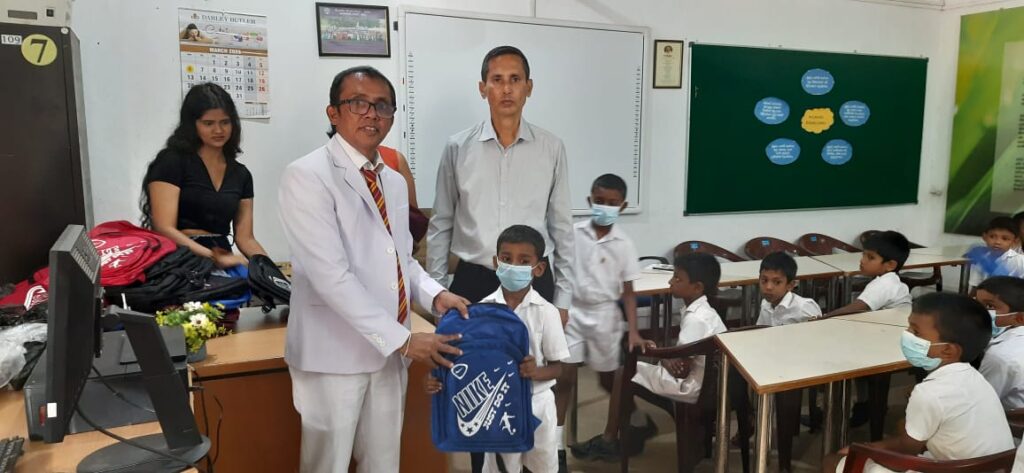
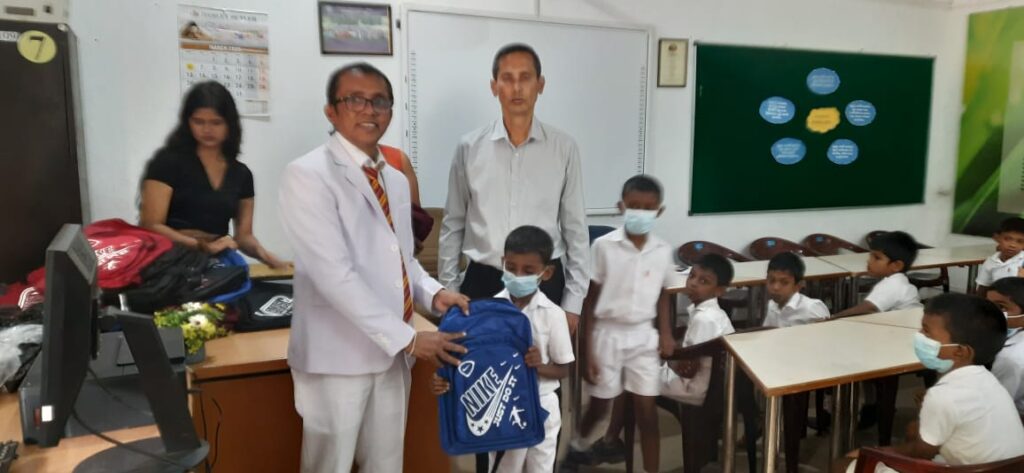
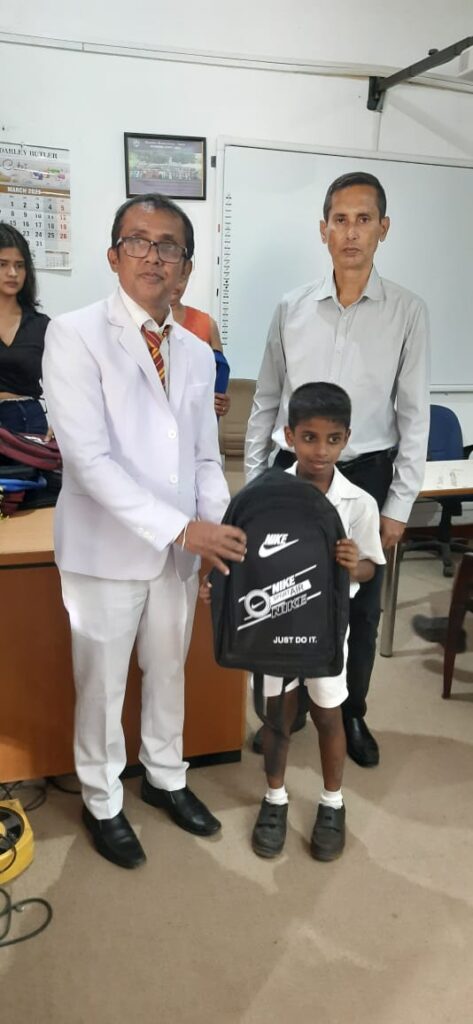
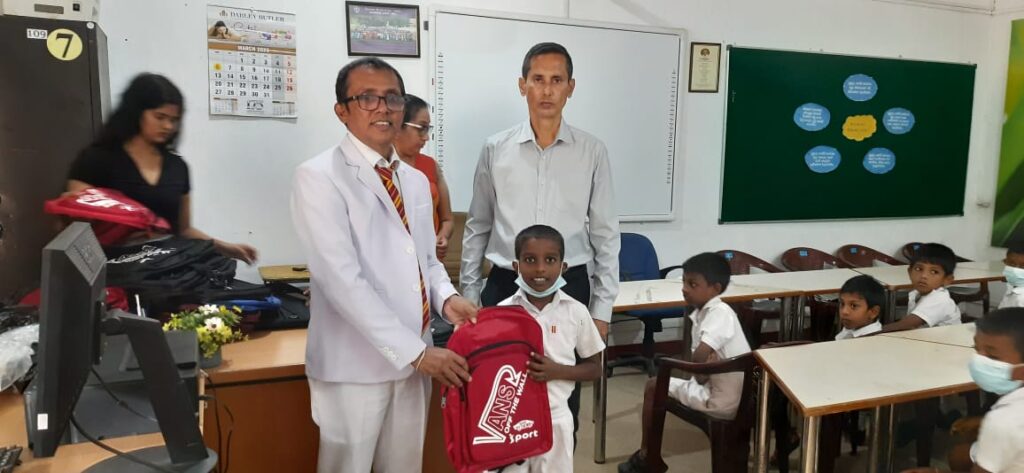
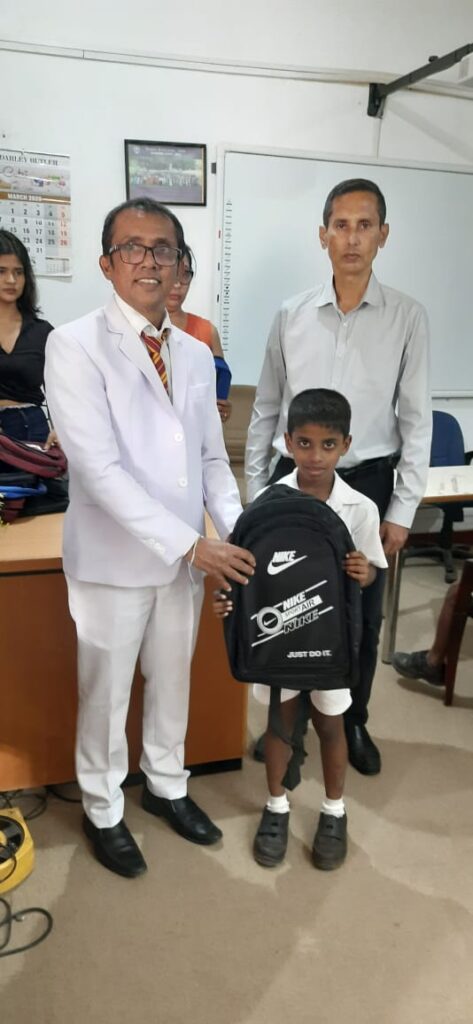
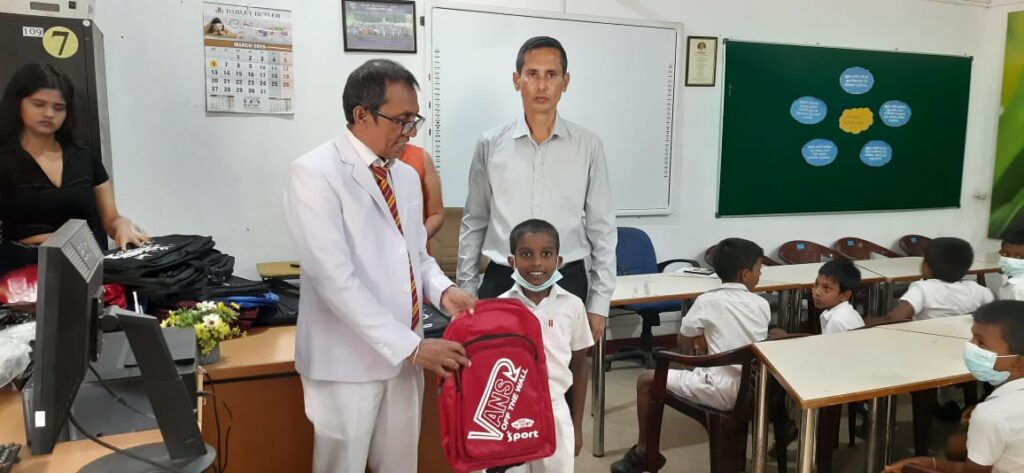
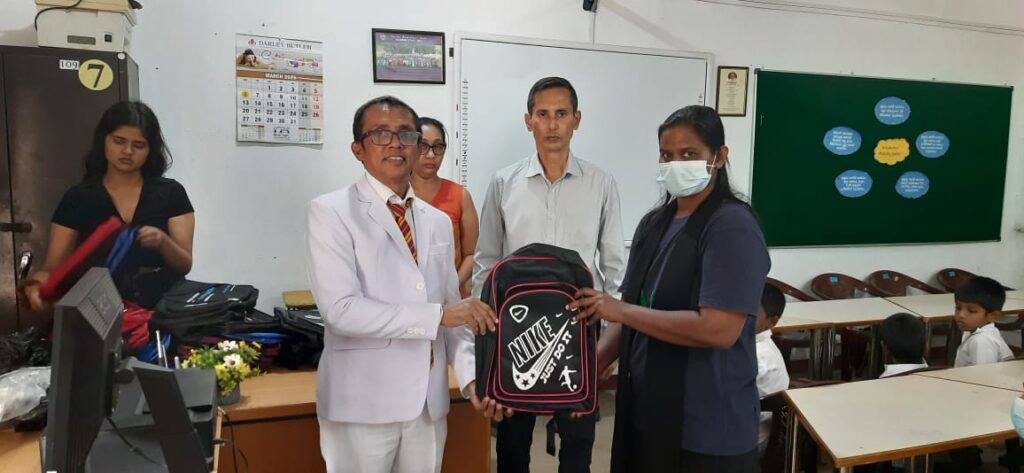
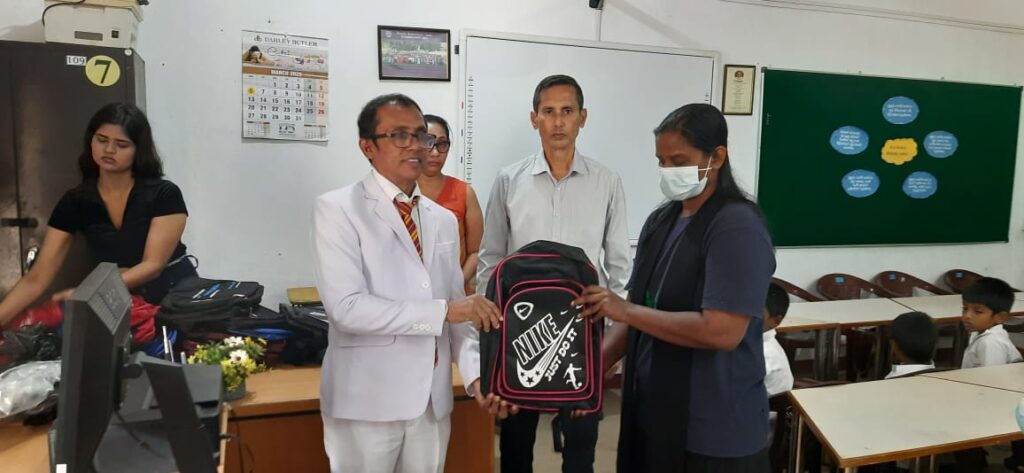
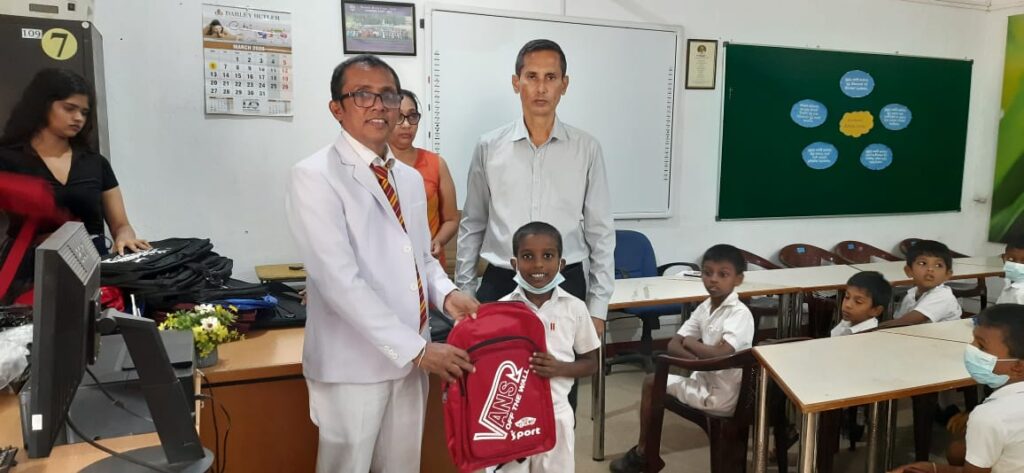
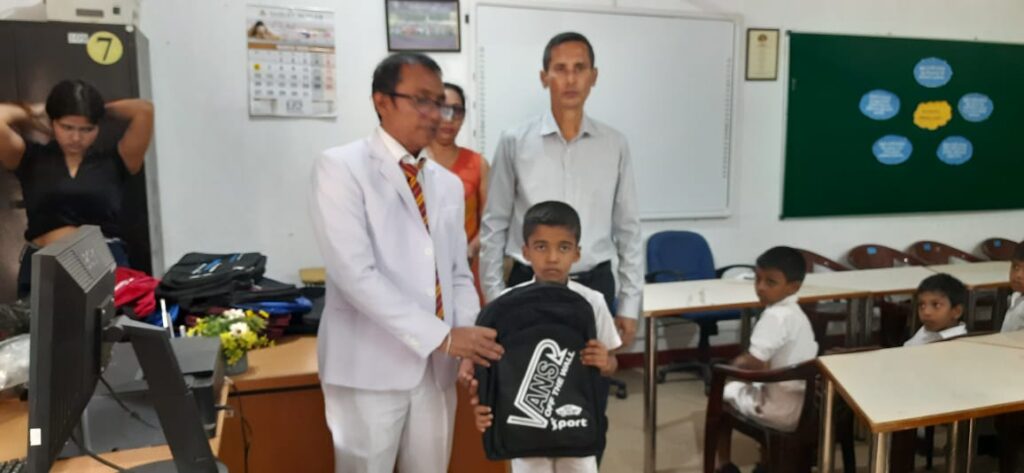
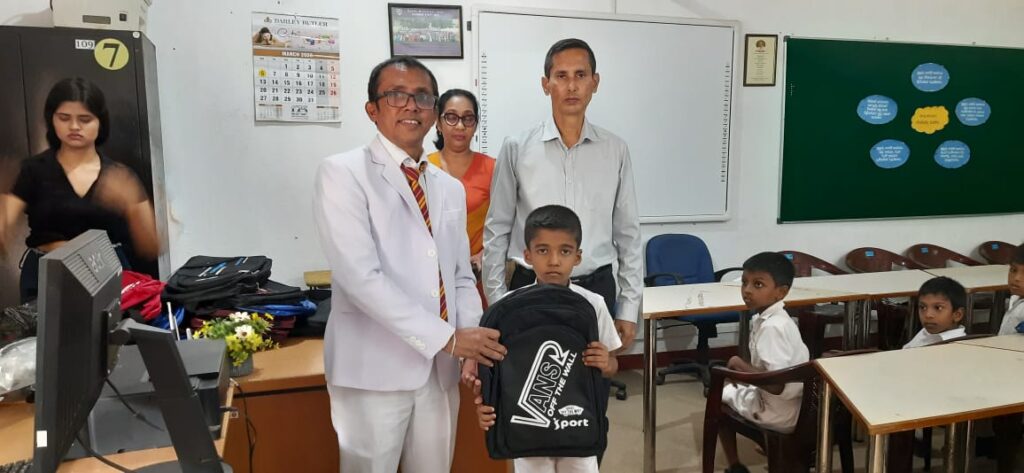
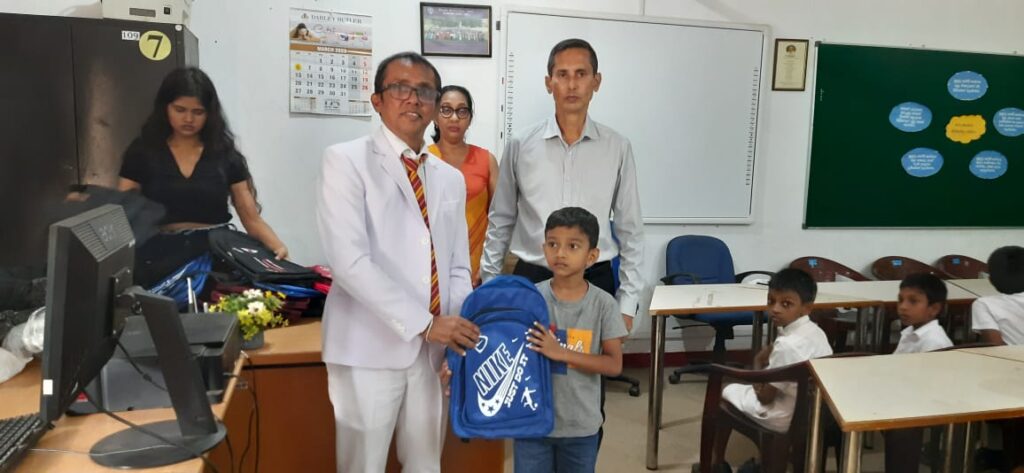
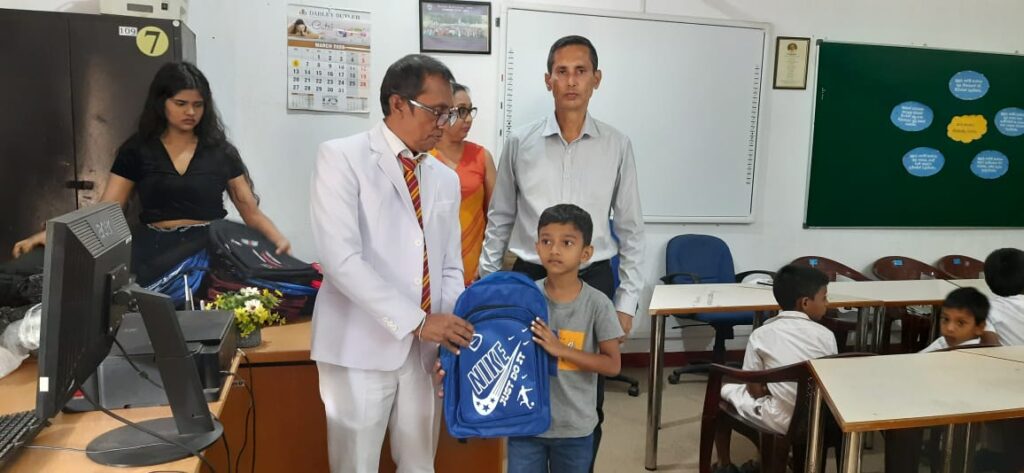
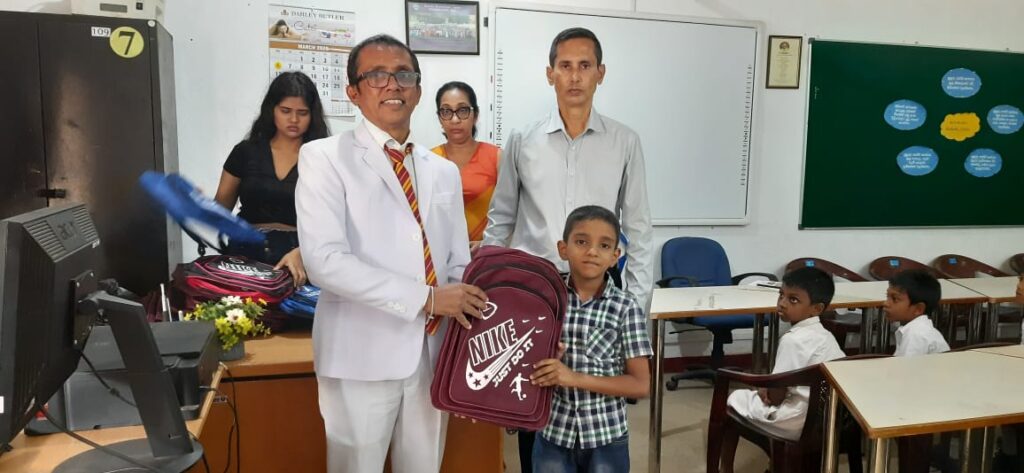
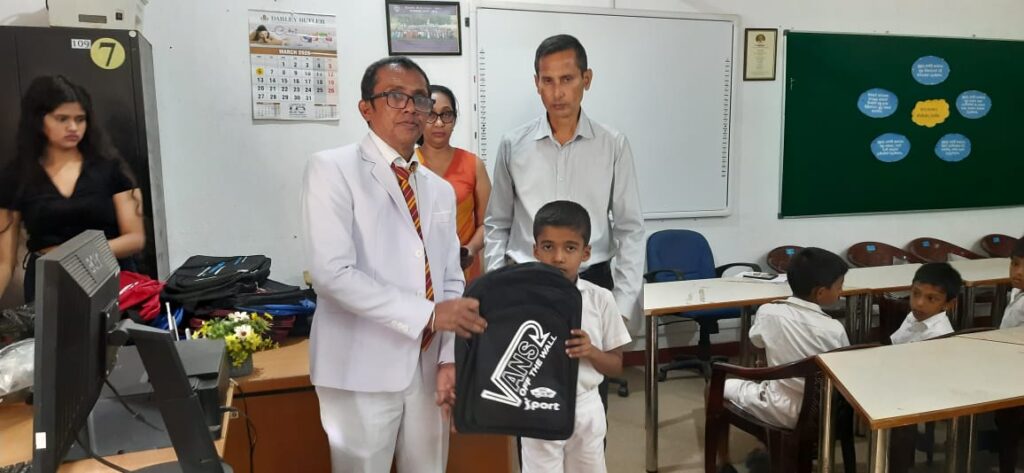
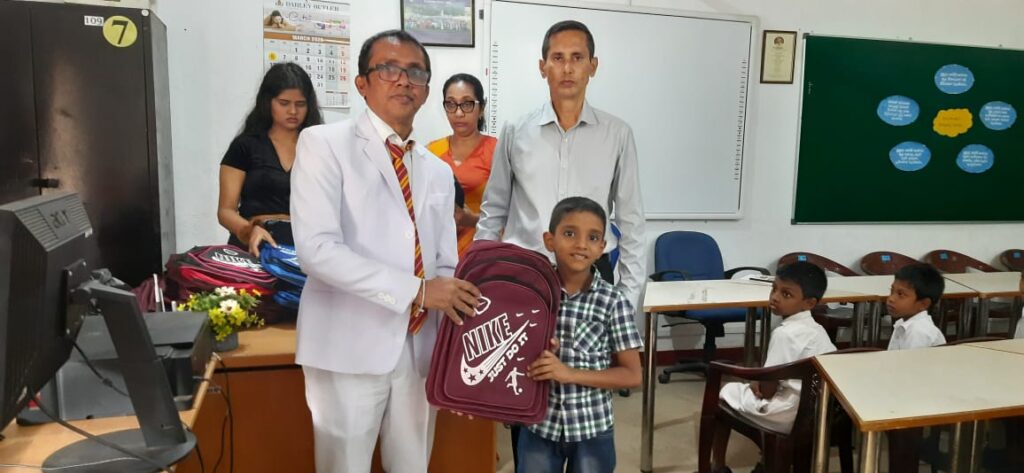
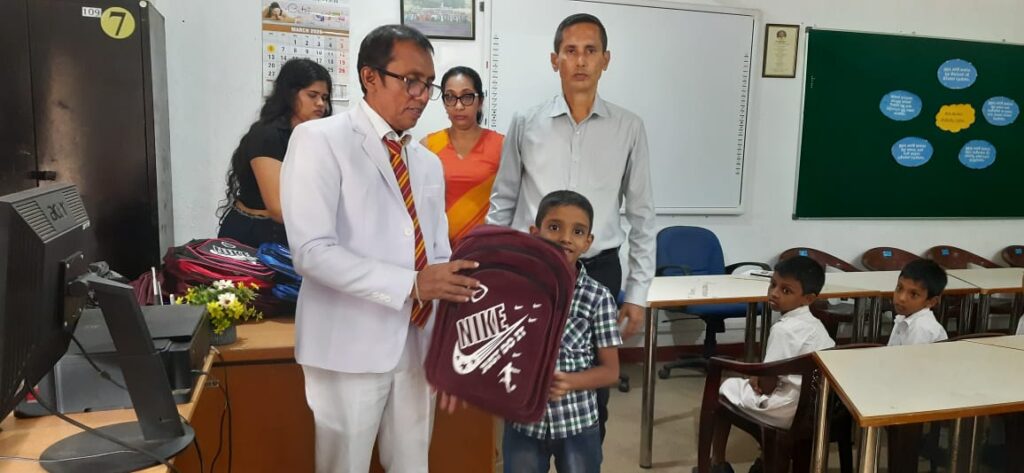
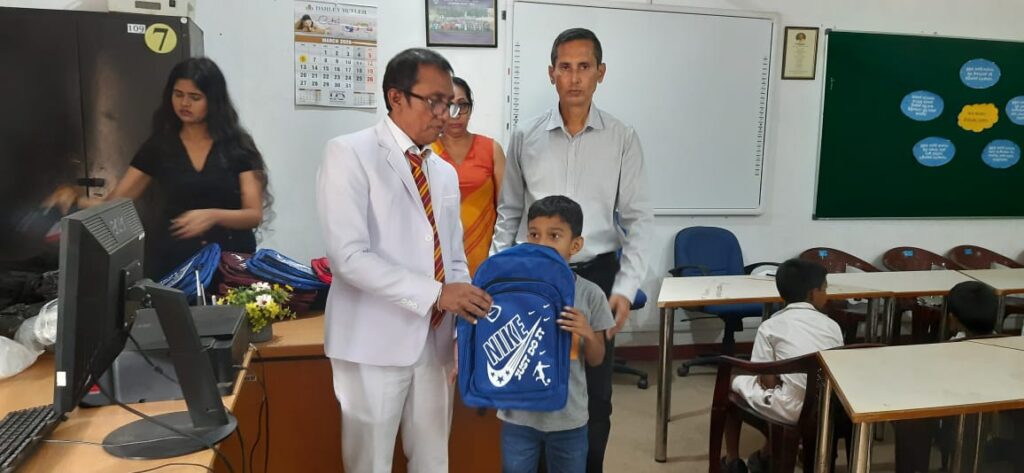
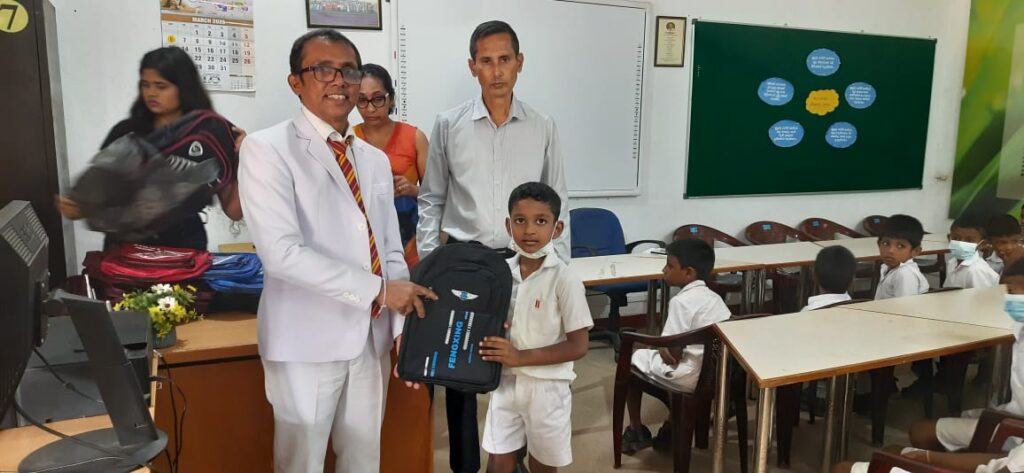
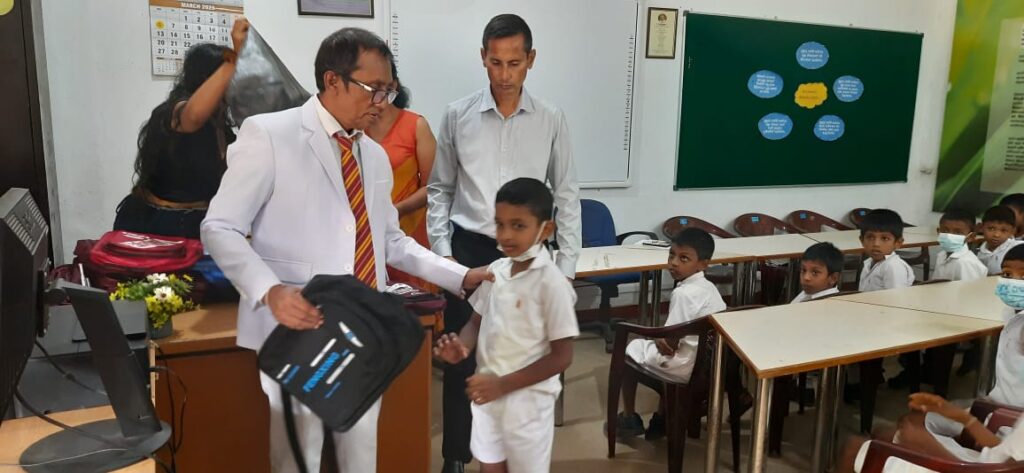
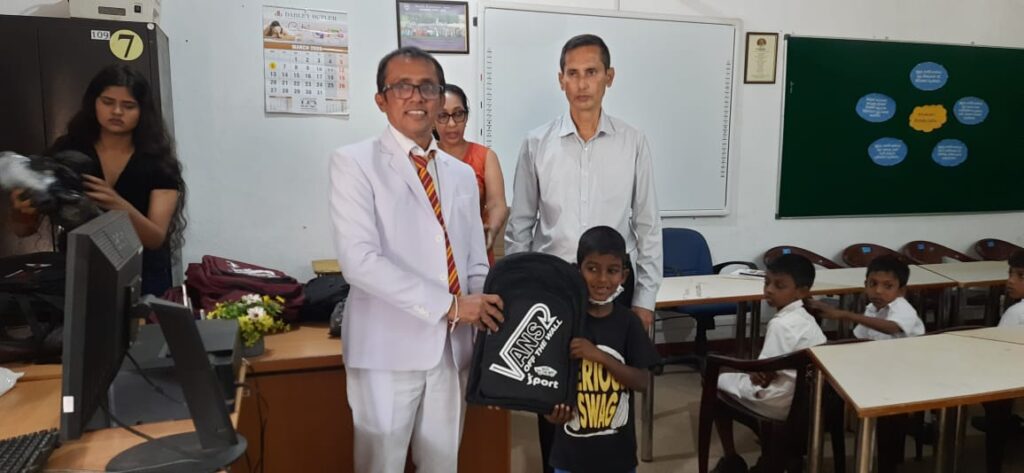
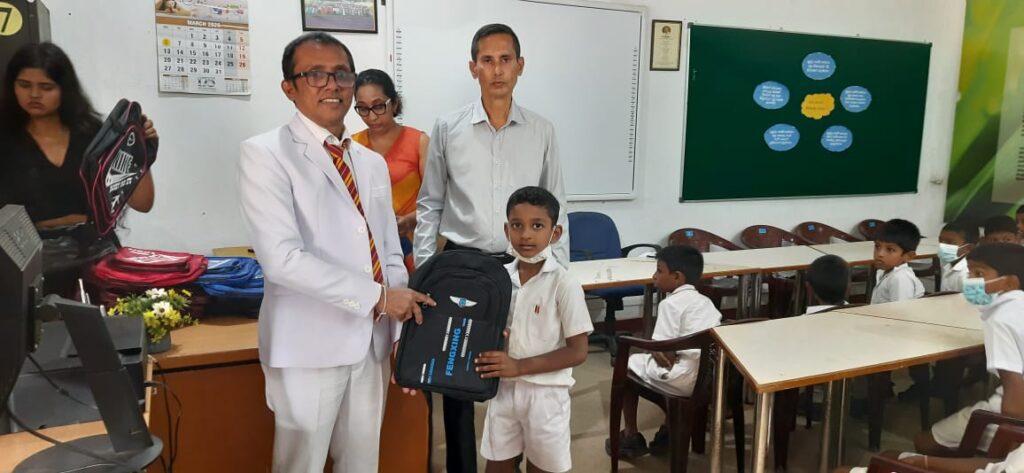
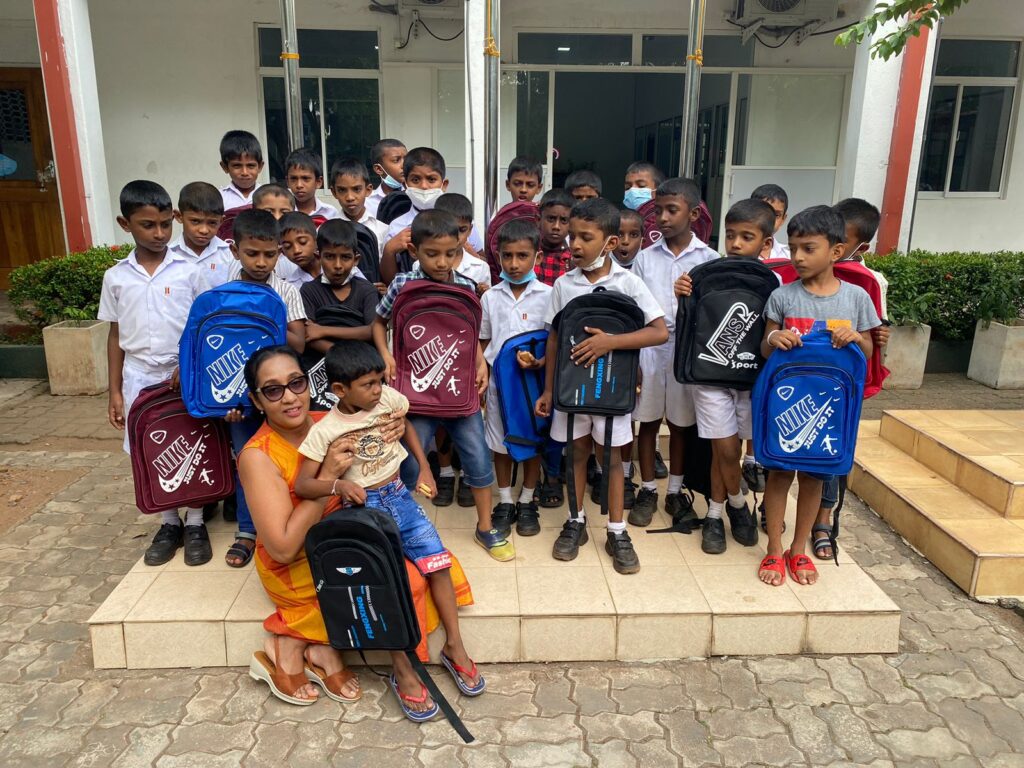
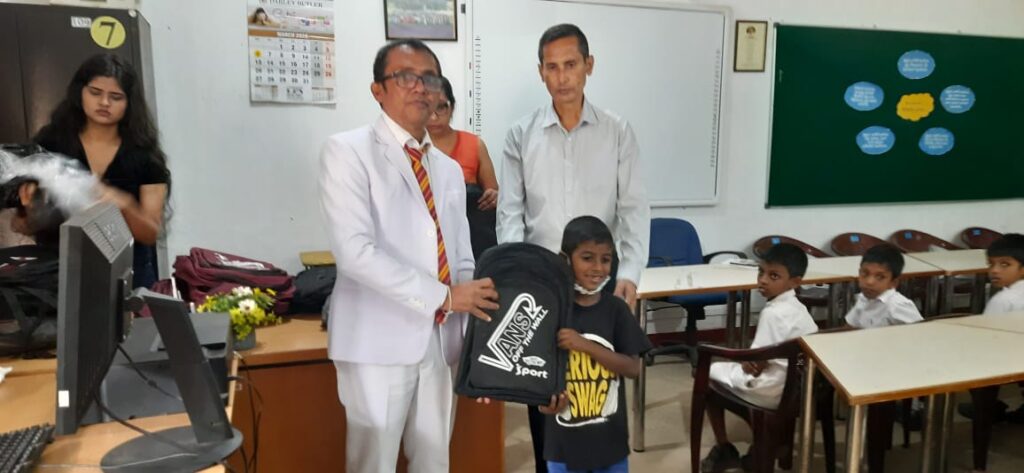
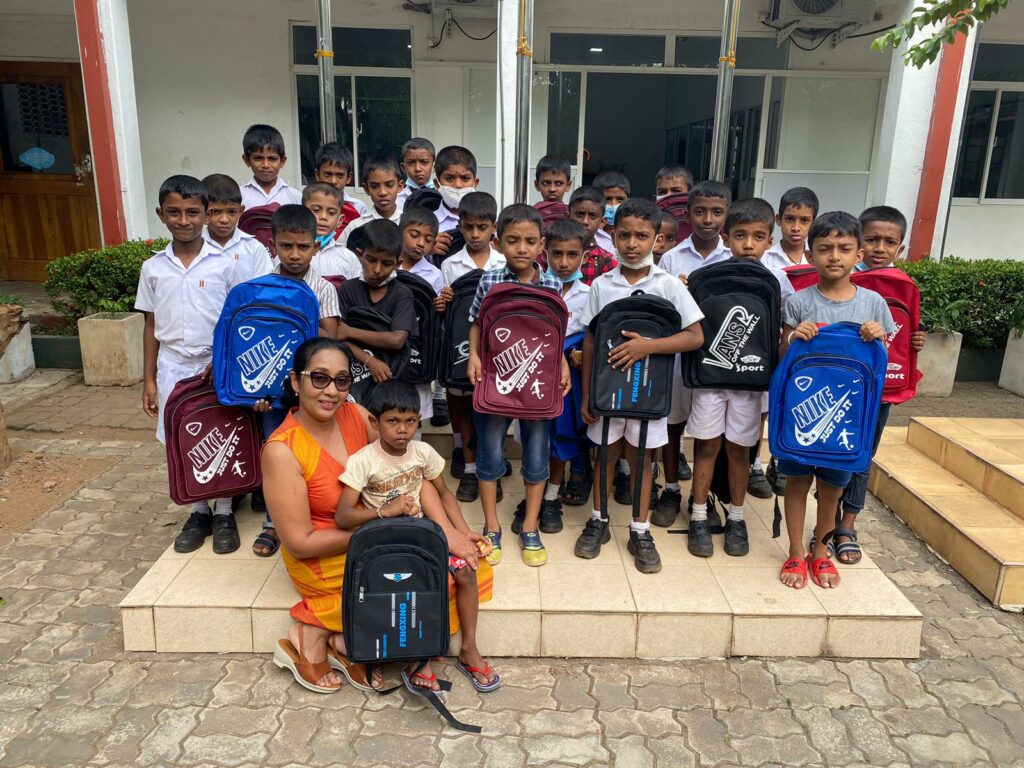
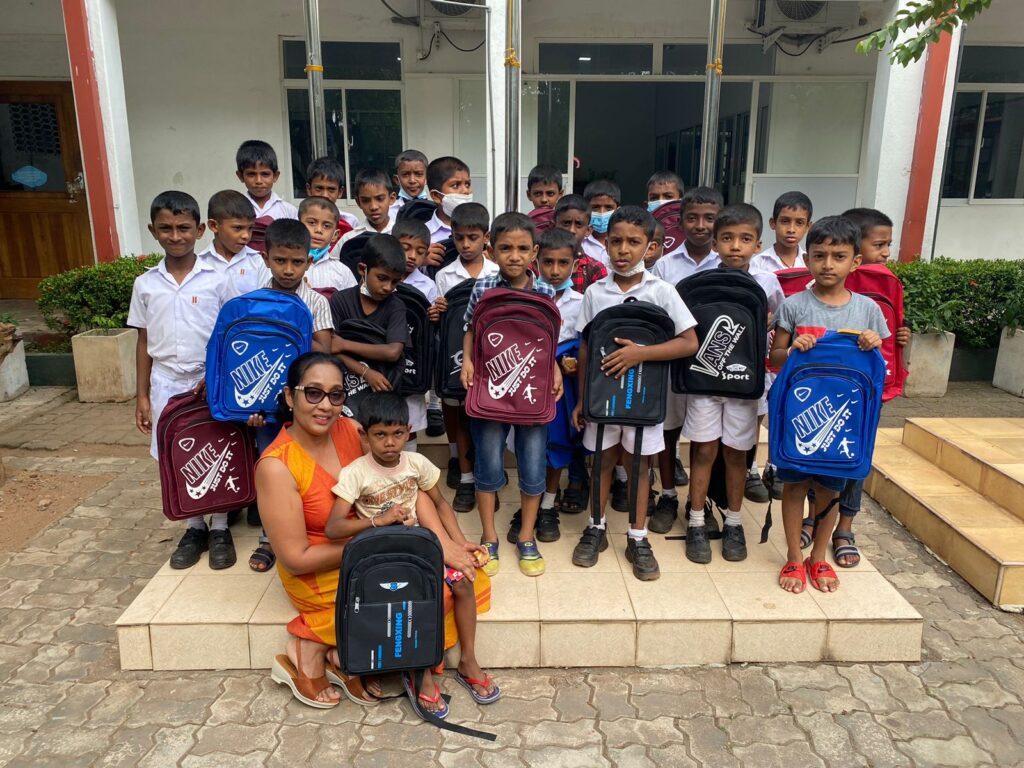
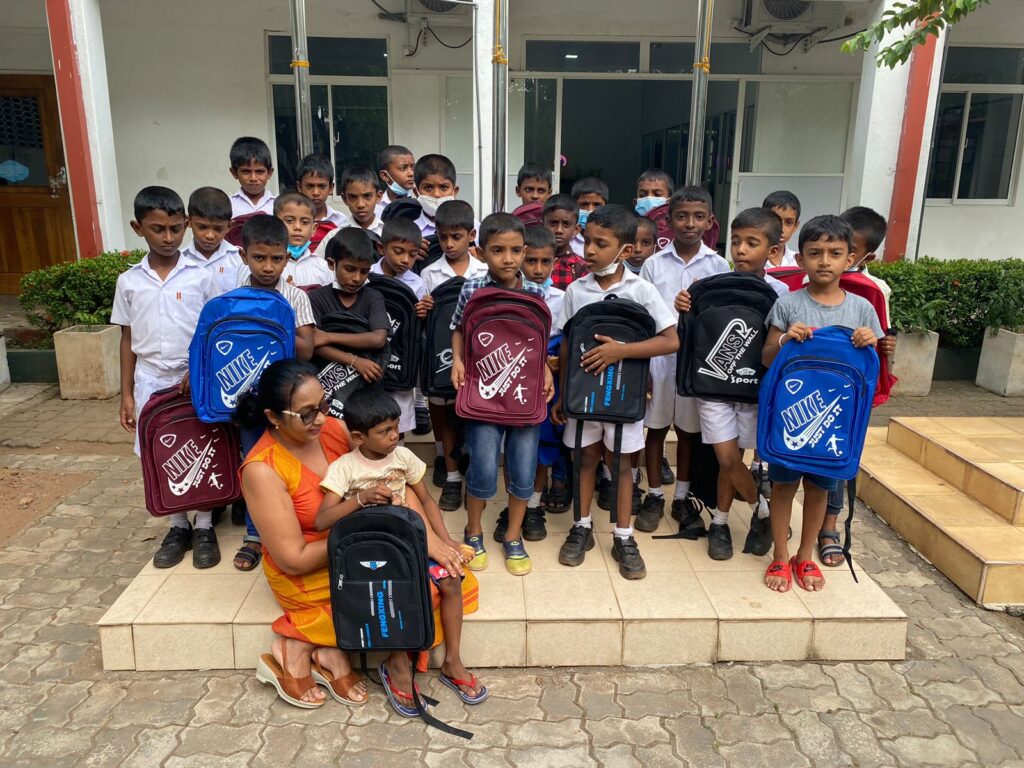
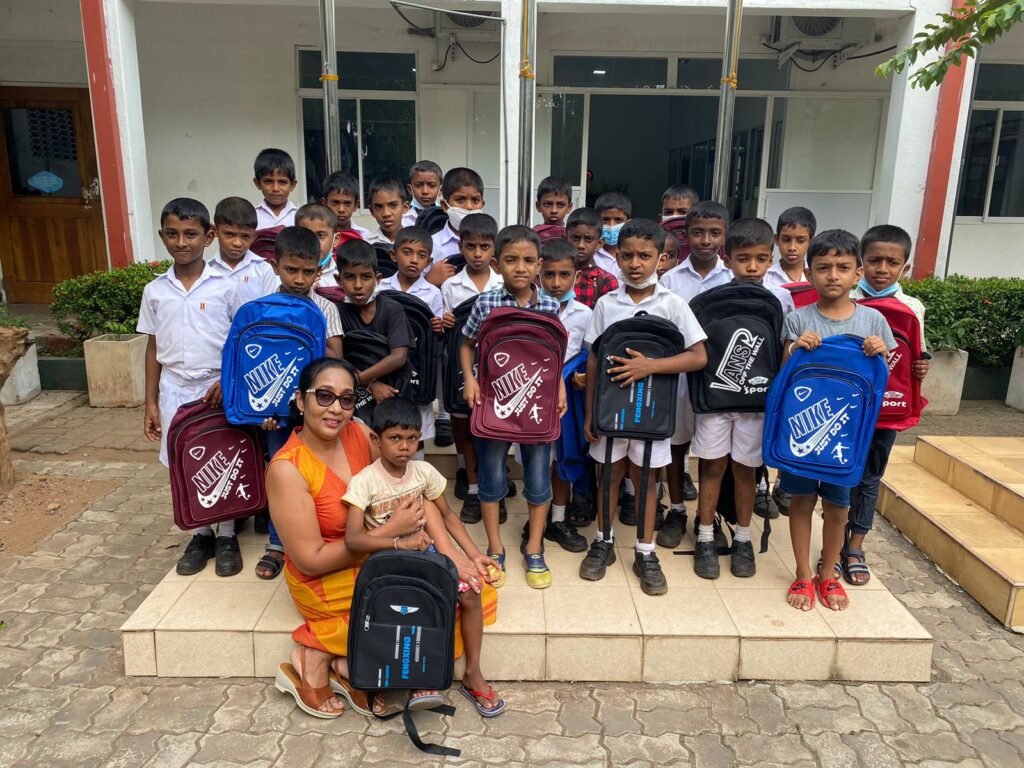
Jehan appointed Country Head of Acuity Knowledge Partners Sri Lanka
Acuity Knowledge Partners (Acuity), a leading provider of high-value research, analytics and business intelligence to the financial services sector, has announced the appointment of Jehan Jeyaretnam as Senior Director and Country Head, Sri Lanka.
In the new role, Jehan will oversee Acuity Sri Lanka operations, drive expansion of the business and help maintain Acuity’s position as the leading financial services KPO firm in the region.
Acuity plans to expand its Colombo delivery centre to over 1,000 employees in the next few years.
Congratulating Jehan, Acuity’s Chief Executive Officer Robert King said: “I’m pleased to welcome Jehan as our new leader for Sri Lanka. Jehan has a proven track record of serving global clients, building exceptional teams, driving service delivery and technology innovation, and building strong partnerships with local bodies. We are thrilled to have him lead Acuity’s continued growth in Sri Lanka.”
“I also thank Chanakya Dissanayake for the exceptional job done as Sri Lanka’s Country Head over the years and wish him the best as he takes on greater global responsibilities within Acuity to drive our next phase of growth and service delivery excellence,” Robert added.
Jehan has been with Acuity for the past 17 years, serving in a variety of leadership roles. Since 2016, he headed Acuity’s Compliance Solutions business unit. This unit has grown significantly in recent years and is expected to become a significant growth engine for Acuity in the years to come.
Acuity Knowledge Partners Managing Director Chanakya Dissanayake said: “Jehan has proven management and leadership skills and a strong understanding of Sri Lanka’s business ecosystem, and I am confident he will enable us to continue to drive Acuity’s expansion in Sri Lanka.”
Acuity Knowledge Partners is a leading research, analytics, and business intelligence consultant to the financial services sector. The company’s network of analysts and industry experts, combined with advanced data and technology, supports over 520 financial institutions and consulting companies worldwide to operate more efficiently, and unlock their human capital, driving revenue higher and transforming operations.
It specialises in investment banking, investment research, private equity and consulting, and commercial lending. Acuity is headquartered in London and operates from nine locations worldwide. In 2019, the company was established as a separate business from Moody’s Corporation through its acquisition by Equistone Partners.
Dilum appoints country representatives to woo potential investors
Investment Promotion State Minister Dilum Amunugama recently appointed country representatives to six countries in a bid to disseminate actual facts about the Sri Lankan image to potential investors and promote the country as the premier destination for investment.
The country representatives, who are well-experienced personnel in diverse sectors, will represent Sri Lanka in countries such as India, Malaysia, UAE, Republic of Korea, Qatar and the United Kingdom.
Addressing the event, the State Minister said, “It is evident and apparent that the country’s image is being tarnished by the erroneous information being circulated in foreign media, which have a detrimental and monumental bearing on the country’s image.”
“Due to the proximity to potential investors and their knowledge of economic and political conditions in the countries, these officials can reach out directly to the potential investors and deliver accurate information, and provide them with the data they need to make an informed investment decision in favour of Sri Lanka,” Amunugama articulated.
“Furthermore, given the international competitiveness to attract Foreign Direct Investment (FDI), the promotional aspect of the country’s position and nation branding has come to the fore. As we know, Sri Lanka’s strong suit is its strategic location and business-friendly atmosphere to do business. In this context, it is imperative to focus on promoting Sri Lanka as the best destination in the Asian region. As such, the newly appointed representatives would be ideal to tell positive stories about Sri Lanka, thereby driving more investments into the country,” the State Minister added.
These officials will monitor the conditions of respective countries and maintain a cordial and direct dialogue with the Board of Investment of Sri Lanka.
Investment Promotion Ministry Secretary M.M. Nayeemudeen and BOI Director General Renuka M. Weerakone participated in the occasion.
DAILY FT
Central Bank announces new relief for MSME’s at their last breath
The Central Bank has announced new concessionary measures on the debt of micro, small and medium enterprises (MSMEs) and individuals including fixed income earners and pensioners affected by the present macroeconomic conditions.
Noting that the continuation of these adversities would pose a severe threat on banks recoverability of outstanding loans and advances, the Central bank Bank has directed all banks to restructure and reschedule credit facilities of performing and non-performing borrowers who are adversely affected by the prevailing adverse macroeconomic conditions on the basis of an objective assessment on the future repayment capacity and viability of the business.
Banks have also been requested to suspend recovery actions against non-performing credit facilities that have been classified as non-performing on or after 01.01.2020 on a case by case basis based on an objective assessment on the future repayment capacity/viability of business upon the condition that the borrower submits an acceptable repayment plan.
Banks are also requested to facilitate early settlement of existing performing or rescheduled credit facilities without charging any additional fee i.e. early settlement charges and recovery of future interest applicable to lease facilities.
The new concessions and measures are aimed at encouraging MSMEs and individuals with a potential to revive their business/income streams to commence repayment of loans while preventing any elevated strain on the banking sector.
The Central Bank has issued these guidelines at a time where the majority of small scale business enterprises have already closed down their businesses and other medium scale enterprises are struggling to survive amidst high interest rates for their loans and financial difficulties to pay such loans .
The country has been hit by high inflation and forex shortages, accompanied by trade and exchange controls and very high Interest rates that have wrecked most of its small and medium enterprises (SMEs).
The SMEs, which form the backbone of the country and make up a large part of its economy, are the worst hit, which is gradually leading to massive unemployment.
SMEs are an essential source of employment opportunities and rural income, and are estimated to contribute about 35% of employment.
The companies that were profitable prior to the Easter attacks therefore, need support to be guided out of the crisis.
Solutions SMEs are desperately urging the Government to address the high cost of borrowings and to assist them to find new markets in which to expand and grow.
In addition, they seek the setting up of Business Rehabilitation Units to support, advice, and guide affected businesses towards revival.
Some of their other requests include: Allowing the importation of essential inputs to improve domestic production such as machinery, as well as spare parts and raw material; revamping existing strategies to promote tourism; negotiating with donor agencies for soft loans to support SME business revival; and to ensure the provision of the required fertilizer to increase the supply side and reduce food inflation.
The SMEs cannot be held responsible for the misguided economic policies of successive governments. Amidst the power cuts, most small and medium firms do not have a source of back-up electricity, while the country struggles to provide an uninterrupted supply of power.

